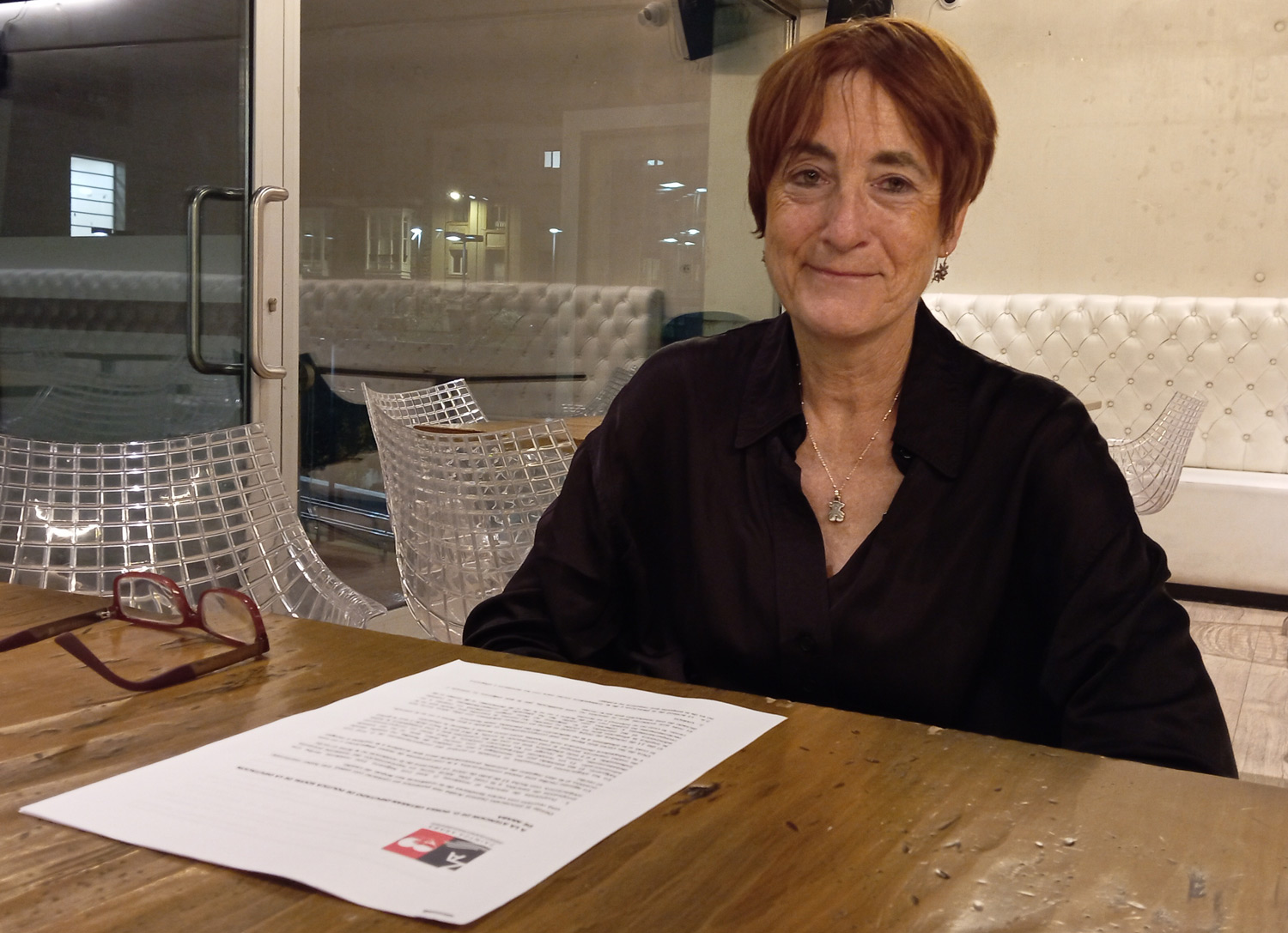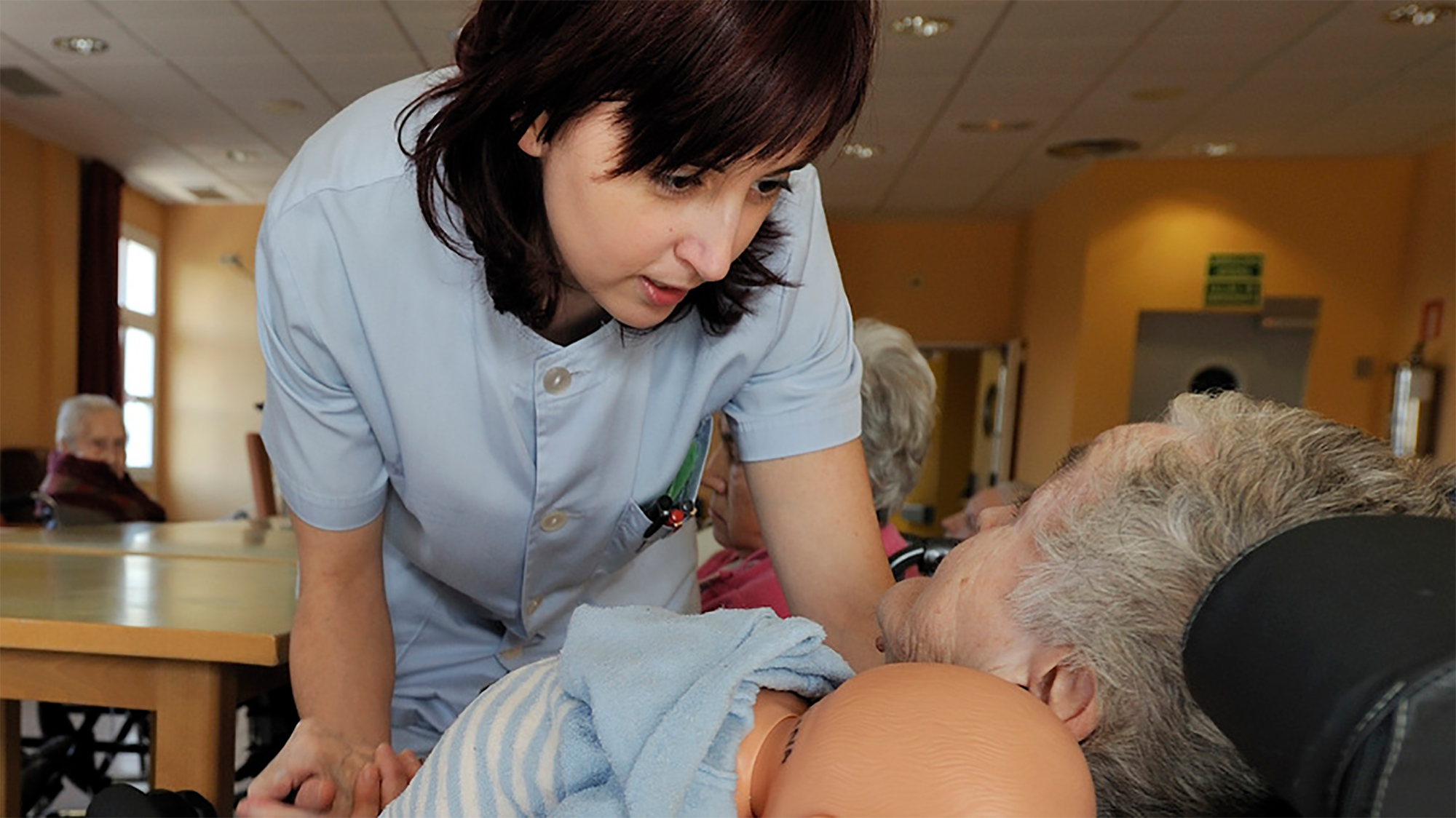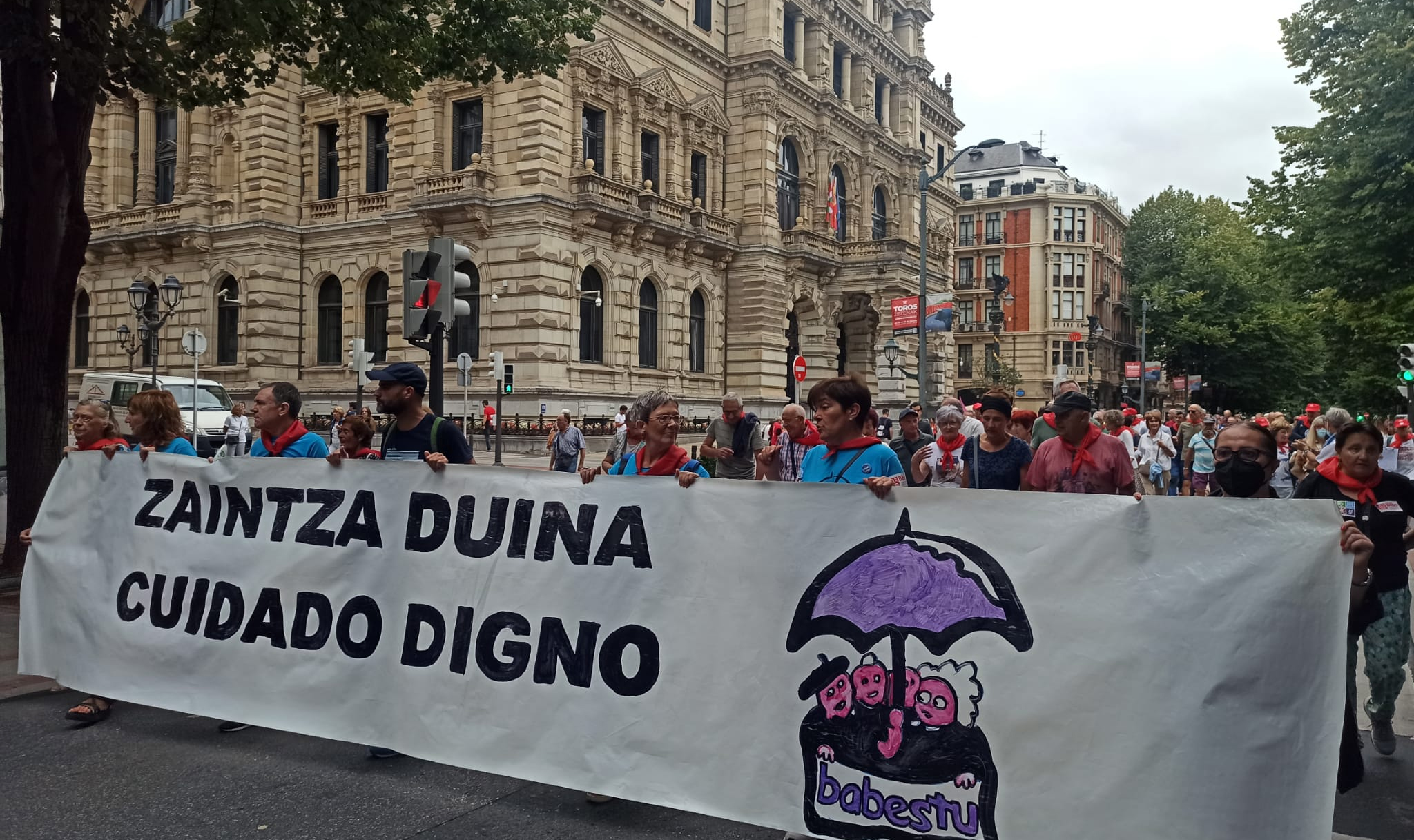"We live in an aging society, but the focus is not on the elderly"
- A massive demonstration was held in Madrid on 17 September under the motto Another surveillance model is possible. It was convened by the associations of family members of nursing homes that make up the State Platform, including the Federation of Guard Protection. Both institutions and citizens have made it clear that the custodial model has failed and that change is necessary. They claim the rights of the elderly and remember that the struggle is of the whole of society. Monreal tells us about the requests made in the protest.
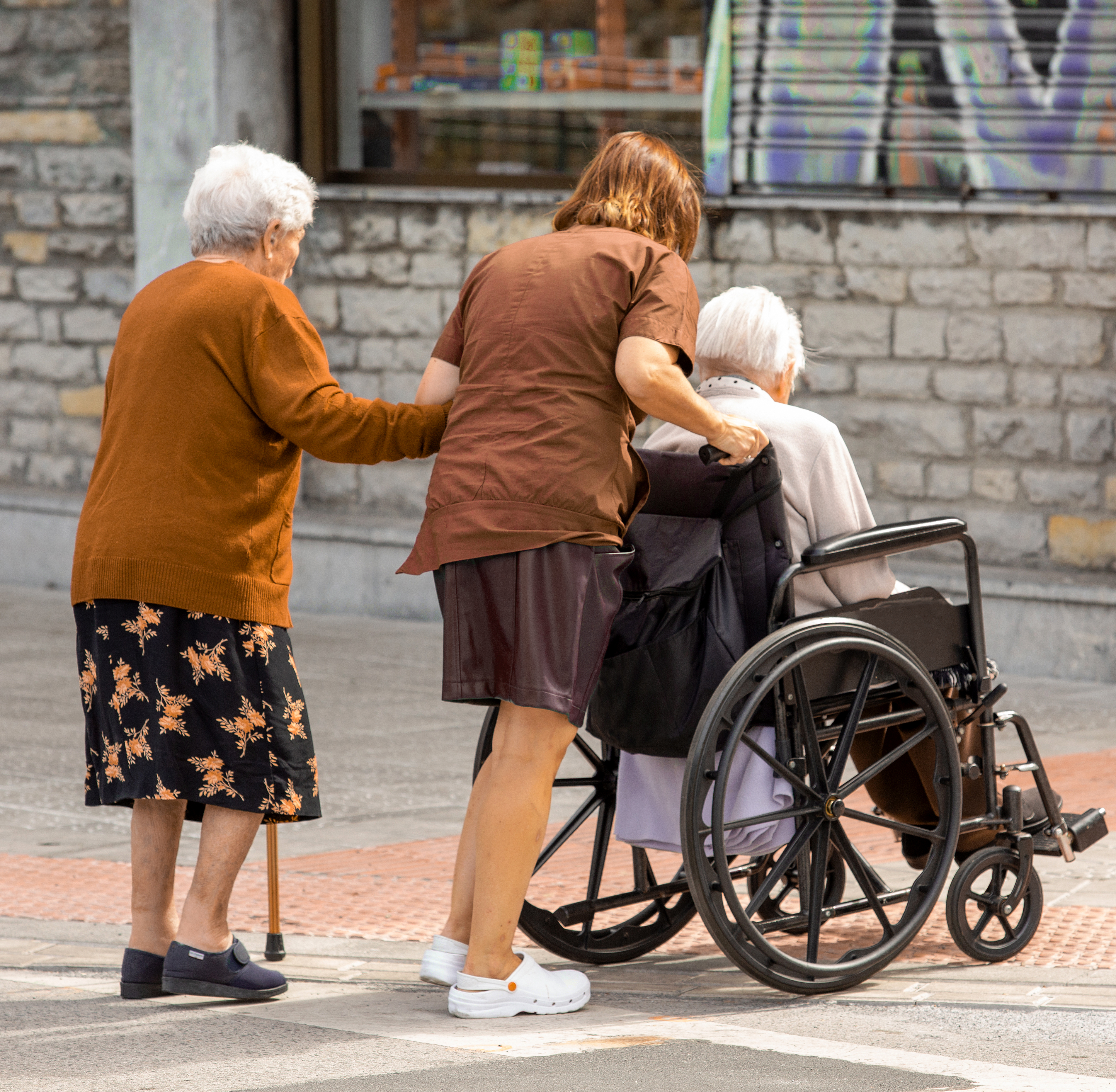
Why is this time important for the demonstration?
We see that the pandemic has revealed some problems in nursing homes, and we thought it was very clear that a change of model had to be created, but we have seen that things have not changed. We must remind politicians that the model we have now is not valid; the pandemic has shown the number of deaths in residences, the conditions they have experienced... They've been worse in lockdown than we have. In addition, the dependence they have in this type of residences is very high and they have lacked attention, emotional, that of their relatives ...
You have addressed the autonomous governments, which in the coming months will have to complete the new rules for the management of residences.
The government of the Spanish State has tried to create a new model, but the competence of the residences lies with the autonomous governments. In this attempt to change the model, the Spanish Government has reached a small agreement with some communities. But that model does not meet the requirements we ask for, although it seems to be more progressive. We [the associations] have reflected over these years and have tried to create a new model compared to that of other European communities and countries.
What is the lack of the model proposed by the Spanish Government?
See how he sums it up! To begin with, in the area of participation everything is about to be done. There is no family participation model in the residences. The law sets the principles, but then it is not certified. In residences there must be a participation council in which there are also families, as in schools there are councils.
We also want to participate in the institutions in a Civil Dialogue Bureau. In the State Civil Bureau we have been given a voice to the Platform and to us, but in the CAV we have no opportunity. Look, the contradiction is that they invite us into the state and they don't have the competence, and they have competition in the communities, but our presence is not guaranteed. We have been in the Basque Parliament and in the general meetings to call for a change of model, and we have reminded them of the participation, yes, they have created a Civil Bureau to deal with the issue of dependency, but we are not invited. We had a private interview with the Director of Social Services of the Government [Marian Olabarrieta], and we asked for the formal participation of three associations of the Basque Country, which did not answer us and which a year ago.

There is a third participation: by law, an Individual Care Plan (IAP) should be implemented for each elderly person in the residences. The participation of the family in this plan is important to assess the requirements and needs: cleaning, medication… But usually the families do not know it exists because it is not made public.
How can participation contribute?
The Scottish example is significant. A resident's relative asked in the parliament for a law to be needed to ensure that in the event of a pandemic and catastrophe with the resident there is always someone of reference from the family, face-to-face, to ensure emotional attention, because they saw the consequences as very harsh. That’s why Anne’s Law is being drafted [2021]. Look at how participation has gone: from bottom to top. There is nothing here. If there was another pandemic, what would happen? Have we learned anything?
"If older people cannot participate by themselves, there
must be someone to represent them"
In your requests they affect the number of inspectors and trabajadores.En the inspectors, the relatives make several complaints, but they stay in
a box. Strengthen inspection. In Bizkaia, for example, there are only eight inspectors for all social services. In addition, you have to come suddenly and without warning, there are problems to see, and it is not done.
On the other hand, the conditions of the workers are not good and if the caregiver does not have them, this has consequences for our parents and families. We share the struggle and demands of the workers. They do not arrive to do everything they need, they have to do it quickly and badly, more hands and eyes are needed for quality care. Associations have a good relationship with workers and we know many things that we do not know from them, because they are direct witnesses.
Our request is for each resident to have direct care of five hours a day, two in the morning, two in the afternoon and one in the evening. This implies the need for one geriatric assistant for every four residents during the day. And we're a long way from there, not complying with the current law.
They have also strongly criticised the privatization of
the sector. Sometimes politicians here say that you have to be private and public. But privatization is being huge and the public is losing. In Álava it is very notable, but in Bizkaia it is also between 80% and 90% in private terms. We believe that health care must be absolutely public, it is our right. Our population ages, therefore, like pediatricians, we must consider the presence of specific geriatric components for the elderly. The physician of our Association has calculated that with 1% of the Osakidetza budget this geriatric system would be possible and that a public geriatric assistant could be guaranteed for each specific population.
"If staff conditions are not good, there are consequences on the care of residents"
What are the consequences of privatization?This is a business whose objective is to make money, and that is in contradiction to the law: the law says that socio-health care
must be universal and subjective, so it cannot be a business. They say they comply with the law -- but the bottom line is that conditions are bad. Food, obsolete equipment, minimum number of workers, etc.
They report that no research has been conducted to analyse the consequences of the COVID-19 pandemic: they want to know why the deaths and inadequate practices of thousands of residents have been accepted. What is it now? Complaints
have been made, but justice is gradually moving. In the CAPV there have been cases in which the victim has been incinerated and the case closed, “there is nothing to investigate”. Another case has been won: In Navarre there has been a case in which a resident denounced and managed to punish. However, as a partnership we have collected many stories during the pandemic, we have seen amazing things. For example, some people who needed to be transferred to the hospital stayed in residences. We do not believe that what happened in the pandemic is being studied. Have we learned anything? I don't know. Society must also reflect.
How can we convey to citizens that fighting for the rights of the elderly is for the rights of all and all?
The association works in this direction: we have carried out technical days and we will continue to see this problem emerge on the street, but it is difficult. In Bilbao we have held several demonstrations with pensioners. We have a very good relationship with them, because although some of them are very good, they see that there is a problem. It's a challenge for everyone, not just my parents, but my future. I don't want to see this model. But in homes, family members are also very afraid because they think that if they fight, they take the place.
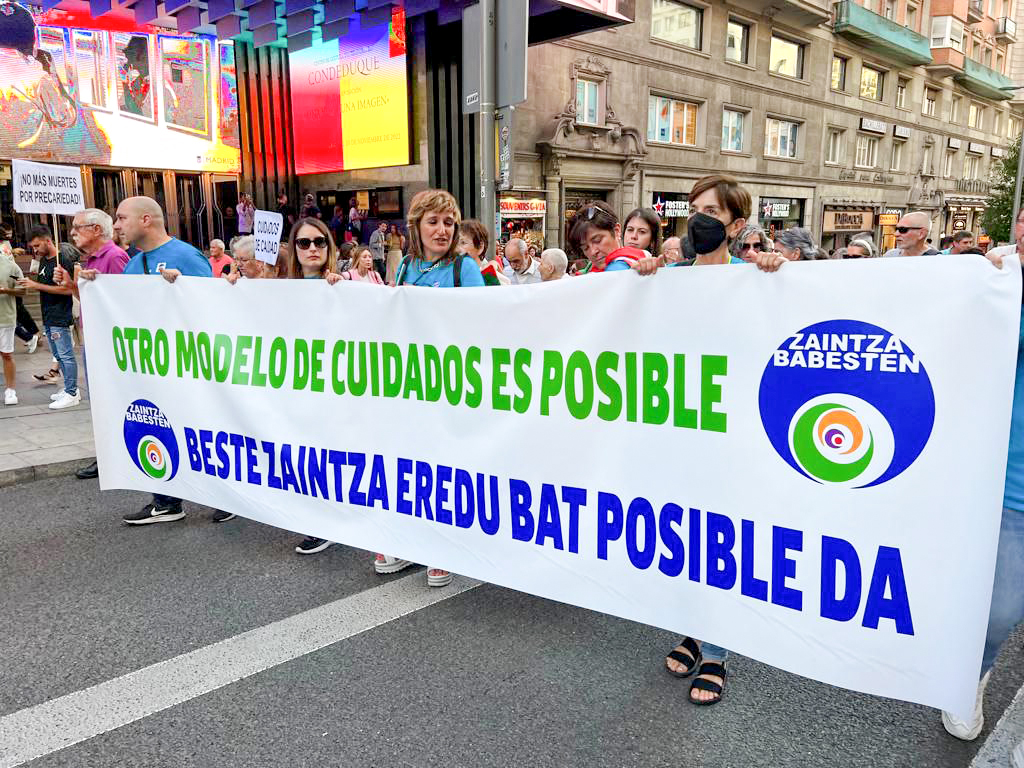
The role of the media is also important, the public media has to work, this issue has to be in the debates, because the population is ageing. The situation is serious. Where are those who have gone wrong? The focus is not on older people, but we live in an aging society.
Some residents are known to
be more dependent than others, but in general, what requirements do they have for their relatives?It is difficult because many of them are not cognitively well. My father, for example, has Alzheimer's; he doesn't know who I am, he doesn't know what he's eaten today, what's going to tell me? That is why it is important to have a representative, because there are few self-employed in the residences. For example, the case of the survey conducted by the Diputación de Bizkaia in 2020. They asked the families what we thought about the quality of the residences, when we couldn't get in. The results were optimal, with a score above 8. How did they say everything was OK, if we couldn't get in? Do those who are there, with the dependence they have, go well? In addition, they asked why residents entered the residences and only 1.2% answered that they wanted to. It is very significant, if the results of the questionnaire are very good, if the model is very good, why does 1.2% decide to go alone? It is a huge contradiction, the survey is not right.
"Home help is what drives institutions, it's easier for them; the problem is for you"
We take them to the residence because we can't do more. All the members of the association have gone through all the phases: having them at home, hiring someone, taking them to the day center and the residence is the last. Level 3 dependence requires comprehensive care. We have to think about the future model. Small or large homes? I think you have to be small, local, that what you can decide is left in your neighborhood. My father goes here [next to his neighborhood park] and finds the same friends he has found in his life.
Would you like to see home help supported in this future model?
That is what drives institutions, for them it is easier, the problem is for you. At home? Yes, perfectly. But with this dependence many resources are needed and the family needs liberation. The whole system should be changed, sometimes we talk too easily about such ideas. It's utopian and when you create a new care model, the idea has to be in the middle, but you have to write a small letter. Under what conditions, what to do with homes without elevator, how to manage all the medicines and health treatments they need with this dementia, etc. Surveillance is not an eight-hour job, it's 24 hours.
They also say they are going to introduce new technologies. New technologies are all very well, but I believe that older people have the right to establish human relations. That is what we need to ensure, we need people. We can count on the support of technologies, but we can't just base the home system on devices or robots. This would be a huge social failure.
Urkullu has on many occasions called for the public-private partnership that is at the heart of the capitalist system, but without any intention of explaining what that connection is today. When the public is complementary and dependent, it cannot oppress the interests of the... [+]
The images that the metal sector strike has left in Bizkaia in the last two weeks are once again spectacular. There are those who talk about the end of the labor struggle, nostalgia for the Euskalduna times, but the reality is that the number of labor conflicts in Euskal Herria... [+]











